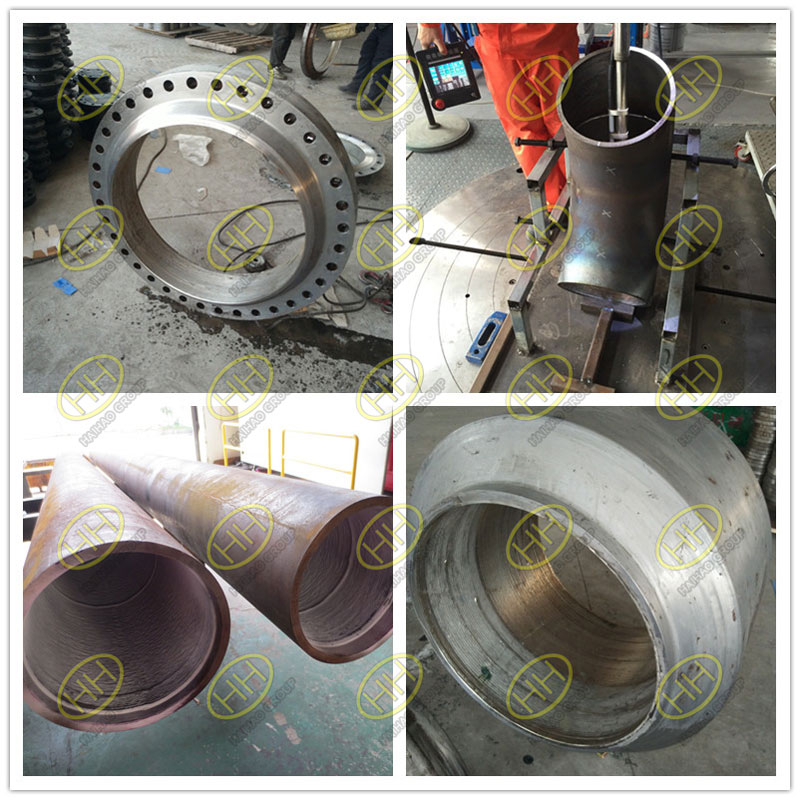Diversifying pipeline solutions: Haihao Group’s expertise in welding and surface treatment
At Haihao Group, our dedication to excellence extends beyond producing high-quality pipeline system components. We pride ourselves on our mastery of various welding and surface treatment techniques, allowing us to meet the diverse needs of our customers effectively.

Weld Cladding Piping Products
Inconel 625: Unmatched Performance
As a widely used nickel-based alloy, Inconel 625 (UNS N06625) boasts exceptional comprehensive properties, primarily attributed to its main alloying elements of Ni-Cr-Mo-Nb:
High-Temperature Resistance: Its elevated Cr and Mo content endow it with excellent resistance to high-temperature scaling and oxidation.
Low-Temperature Toughness: With its exceptionally high Ni content, it retains excellent low-temperature toughness even at -196°C.
High Strength: Thanks to the variety and proportion of alloying elements, it exhibits high strength, with a tensile strength exceeding 760 MPa.
Corrosion Resistance: Inconel 625 demonstrates outstanding corrosion resistance in various media:
Excellent resistance to pitting, crevice corrosion, intergranular corrosion, and erosion in chloride environments.
Superior resistance to inorganic acid corrosion such as nitric, phosphoric, sulfuric, and hydrochloric acids, as well as alkali and organic acid corrosion in both oxidizing and reducing environments.
Resistance to chloride ion corrosion and stress corrosion cracking.
Minimal corrosion in seawater and industrial gas environments due to its high Mo content.
The addition of Nb as a stabilizing alloy reduces susceptibility to intergranular corrosion.
Welding Considerations
Clean Weld Seam Is Crucial: Due to the high nickel content in the weld seam, precautions must be taken to prevent the formation of low-melting-point eutectics with elements like P, S, Si, and Pb. Thorough cleaning of workpieces and welding wire surfaces before welding is essential.
Use Smaller Welding Specifications: Employing small-scale welding specifications helps control heat input, keeping it below 1.5 KJ/mm. Interpass temperatures should remain below 100°C (preferably ≤80°C) to prevent excessive grain growth in the weld seam and heat-affected zone, thereby preserving joint toughness.
Select Suitable Welding Materials: Opt for welding materials with low carbon, low impurity content (such as P, S), and moderate Fe content to avoid issues like hot cracking and degradation of corrosion resistance.
By adhering to these meticulous welding practices and leveraging our expertise in surface treatment, Haihao Group ensures that every product meets the highest standards of quality, durability, and performance, catering to the diverse requirements of our valued customers.

